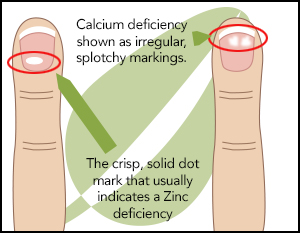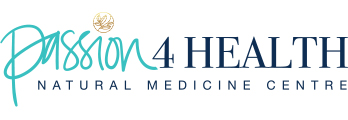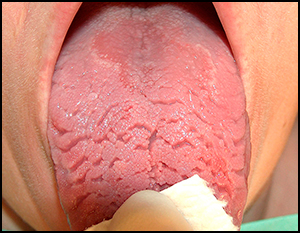Does this Look Like You? 5 Signs of Common Nutrient Deficiencies and How to Fix Them
When you look in the mirror in the morning can you read the important warning signs your body is giving you about nutrient deficiencies? Can you look at your hands to identify whether you may be at risk of cardiovascular disease or liver problems?
If often seems that as we’ve come to rely on blood tests and x-rays, ultrasounds, MRI’s and other amazing diagnostics tools we have available, we’ve forgotten that for thousands of years, both conventional and naturopathic medicine practitioners relied on bodily signs to indicate health. It is certainly true, that modern diagnostic tools have helped to save many lives. Blood tests, can help to identify the exact virus that a patient has and ensures the correct treatment is administered as quickly as possible; while every day colonoscopies help identify pre-cancerous polyps in the bowel.’
However this dependence comes at a cost. We have better, more effective tools to detect when things have gone wrong, but we no longer remember to read the signs that could prevent them going wrong in the first place.
This is a list of five of the most common body signs I see nearly every day in my clinic and how these reflect your overall health, and nutritional status.
Lines & Fissures in Your Tongue
The tongue is one of the most common diagnostic tools used in traditional medicine of all cultures. In Ayurvedic medicine and Traditional Chinese Medicine, tongue diagnosis is one of the primary tools used and skilled practitioners in these disciplines can read the health of nearly every bodily system from the signs on the tongue.
Next time, you brush your teeth, stick your tongue out in the mirror and make careful note of what you see. Most clients in our clinic have a tongue that has deep fissures or grooves in their tongues.
The example above is of a fissured tongue as it would appear under quite high magnification. In the mirror these would appear as lines or cracks.
A fissured tongue is commonly associated with deficiencies of Calcium, Zinc & Silica. It is regularly seen in people with digestive and absorptive problems, particularly IBS & IBD, as Zinc and Silica are quite low in a standard diet and the added problems of IBS and IBD can prevent absorption of even that little bit that is consumed.
Make sure you think twice before reaching for Calcium supplements. I’ve written about the dangers of Calcium supplements previously, so you are always better to increase your calcium absorption through diet and lifestyle means rather than relying on supplementation!
Zinc and silica are a little different. In most peoples diet both Zinc and Silica intakes are actually low. This makes sense when you consider that some of the main sources for Zinc are actually not the pleasant: oysters offer about 150mg / 100g of Zinc with second place going to liver at just 4–6mg of Zinc per 100g. Silica while more abundant in grains, potato, and tea, suffers from relatively limited bio availability at the best of times often made worse by digestive problems.
I strongly recommend supplementation for both these nutrients. You can call our clinic for more information.
Dryness, Scaling & Cracking of the Lips
Image courtesy: James Heilman, MD
In, winter dry, cracked lips aren’t all that uncommon, but sometimes there’s more to it than just simple weather changes! Do you find that dry and cracked lips seem to happen more often than just weather can explain? Do you ever get cracks in the corners or middle of your lips and aren’t sure what has caused them?
I’ve found mouth and lips to be closely linked to B vitamin status. Particularly Folate, B6, B12, B2 and B3. Many common B vitamin supplements provide these in an un-activated form, this can make them harder for the body to absorb, as well as depleting your Zinc levels to activate the B vitamins. You can also purchase activated B vitamins which provide far better results and are generally what I recommend in the clinic.
Lips, particularly angular cheilitis, the small cuts in the corners of the lips, can indicate anaemia or problems storing and processing iron. I often find angular cheilitis in clients that are a vegetarian or that have particularly bad cases of intestinal dysbiosis preventing the absorption of iron. Angular cheilitis can also be due to diets that are high in legumes or grains. Both these foods are high in phytic acid which is known to bind to iron making it unavailable to the body.
What Can Your Nails Tell You?
It’s unfortunate that we so often cover our nails with nail polish or colours. Your finger nails can tell you so much about your body and nutrition levels. Next time, you cut your nails I challenge you to take a really good look at your nails to see what yours are saying.
Ridges on your Nails?
Do you have ridges on your nails? These run the length of the nail and make your nail feel rough when you scrape another nail across it. This is one of the most common nail signs I see in the clinic and one that nearly everyone shows. There’s two types of ridging and each type indicates different health conditions.
Vertical ridging is associated with low silica, iron, and B vitamin levels. It indicates there is a weakness in the connective tissue strength and like nearly all nutritional deficiency is associated with nutrient absorption and digestive problems. It is the most common form of ridging that I see, nearly everyone has this to a greater or lesser degree. Which is not surprising considering our modern diets tend to be low in both silica and B vitamins.
The second form of ridging is horizontal ridging where the ridges run across the nail body. Like vertical ridging these imply nutrient deficiencies, however in this case it is temporary periods of nutrient deficiency that has disrupted the nutrient supply to the nail. Outside of actual physical injury to the nail, the most common causes are:
- illness
- severe stress
- toxin exposure.
Horizontal ridges are also a warning of circulatory disorders, particular in blood supply to the extremities.
Do you have White Spots?
 On left the solid markings distinctive of Zinc deficiency. On right the splotchy markings associated with Calcium deficiency.
On left the solid markings distinctive of Zinc deficiency. On right the splotchy markings associated with Calcium deficiency.
White spots on the nails are another common nail sign that will usually indicate a temporary nutritional deficiency of Zinc and possibly Calcium. Zinc will typically form a solid dot on the nail, while Calcium deficiency will show up as more irregular shapes. See the diagram below.
Like horizontal ridges, white spots may sometimes indicate heavy metal toxicity.
Is Your Hair Dry, Brittle, or Thinning?
Is your hair dry, brittle, or thinning? Before rushing out and buying another new brand of shampoo or conditioner take a moment to think about your diet! It’s amazing how susceptible hair is to poor nutrition.
Sparse and thinning hair is commonly associated with low intake and deficiencies of protein, biotin, and essential fatty acids. This is no secret and has been used by horse trainers and dog breeders to increase the shine and quality of an animal’s coat. Humans are definitely neither dogs, nor horses; however, our diets are equally deficient in essential fatty acids. I have found that supplementation with essential fatty acids, particularly Omega–3’s will often provide great results.
Or is it a sign of something deeper?
Both hair, and eyebrows and eyelashes, has been linked with thyroid and adrenal glands. I commonly find that when someone has both dry, thinning hair and thinning eyebrows / eyelashes, that there is often an imbalance occurring in the thyroid gland, adrenal glands, and pancreas. This will usually involve slow thyroid function, long term exposure to some form of mental or emotional stressor and constant self medication with sugary cakes and chocolates.
In these cases, it’s important to dig a little deeper as purely supplementing with essential fatty acids is often ineffective. I find that bigger picture dietary change is needed to reduce blood sugar levels and rebuild the adrenal glands. I have written more about rebuilding adrenal glands previously.
Do you have nutritional deficiencies?
If you are concerned about nutritional deficiencies you can call me to arrange a consultation on (07) 3800 1993. In addition to bodily signs I use a number of other screening tools that can help to identify common nutritional deficiencies including:
- Iron
- B12
- Essential fatty acids
- Zinc

 An example of a fissured tongue.
An example of a fissured tongue.